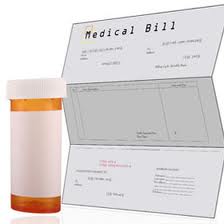 Another year of steadily rising insurance premiums for your business and you are faced with a major dilemma… make employees contribute more towards their insurance or drastically cut the the insurance benefits to make it more affordable for your business.
Another year of steadily rising insurance premiums for your business and you are faced with a major dilemma… make employees contribute more towards their insurance or drastically cut the the insurance benefits to make it more affordable for your business.
It’s definitely a bad situation for everyone involved, but it doesn’t have to be. Don’t make the mistake of reacting too quickly and not choosing one of the best tools at your disposal.
Catastrophic Health Insurance in New Jersey
A properly set up and administered Catastrophic Health Insurance Plan will solve these key issues for your business:
- Cut your premiums by up to 50%. Yes 50%!
- Allow for more flexibility in your insurance plan design
- Allow you to set up an HSA or HRA. See my post on HRA’s vs HSA’s.
- Save your employees money on their payroll deduction
- Allow you to continue the health plan without sacrificing benefits for everyone.
Catastrophic Health Insurance – How does it work?
In NJ you will generally use a qualified high deductible health plan as your catastrophic health insurance.
Upfront Deductible
Almost all of the catastrophic health insurance plans in NJ will have $2,500 single deductible and a $5,000 family deductible. With these plans, all services are subject to the deductible before anything is covered. You do pay lower negotiated rates for your services though.
Maximum out of Pocket
The other key feature of NJ Catastrophic Health Insurance is that they all have a maximum out of pocket. This is the annual limit on how much you will have to pay for your covered services. This figure is usually $5,000 per single employee and $10,000 per family.
Catastrophic Health Insurance To Save the Day – Putting it All Together
Since you are using a qualified high deductible health insurance plan, you have two options at your disposal.
- Health Savings Accounts
- Health Reimbursement Arrangements
We are going to focus on health reimbursement arrangements because this is where employers will save the most money.
Under the new high deductible plan, the HRA will allow you to reimburse your employees for their medical expenses up to whatever dollar amount you choose. You are going to fund no more that what you can afford and it will be based on your premium savings.
Plan Design
Your 10 employee company had an annual premium $60,000. $500 per employee per month.
Your new high deductible plan has an annual premium of $30,000 per year. $250 per employee per month.
Annual Savings of $30,000.
HRA Fund
Based on your proposed savings of $30,000, you will agree to fund the full $2,500 deductible for each employee.
This will total $25,000. If all employees use their reimbursement money, you will still have saved $5,000.
But they won’t……
They will likely use somewhere in the neighborhood of half the money.
End Result:
Old premium:$60,000
New premium + HRA(half usage) = $37,500
Savings:$22,500
That is an almost 40% reduction in your overall premium for the year.
Catastrophic Health Insurance Summary
I showed you a quick example of how a small business can save nearly 40% on their medical insurance premiums. Don’t make the mistake that many do in ignoring catastrophic health insurance as the answer their insurance premium woes.
I would love the opportunity to earn your business. Please contact me for your small business health insurance quote.


